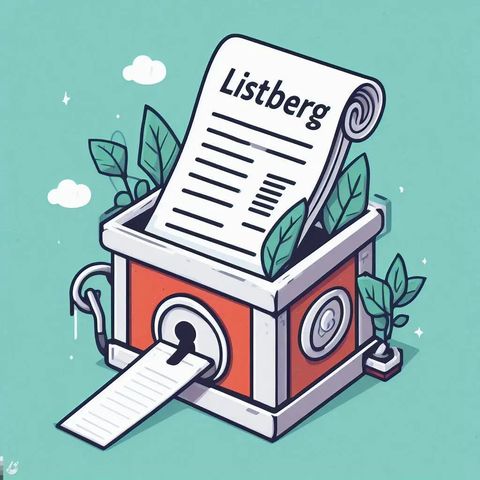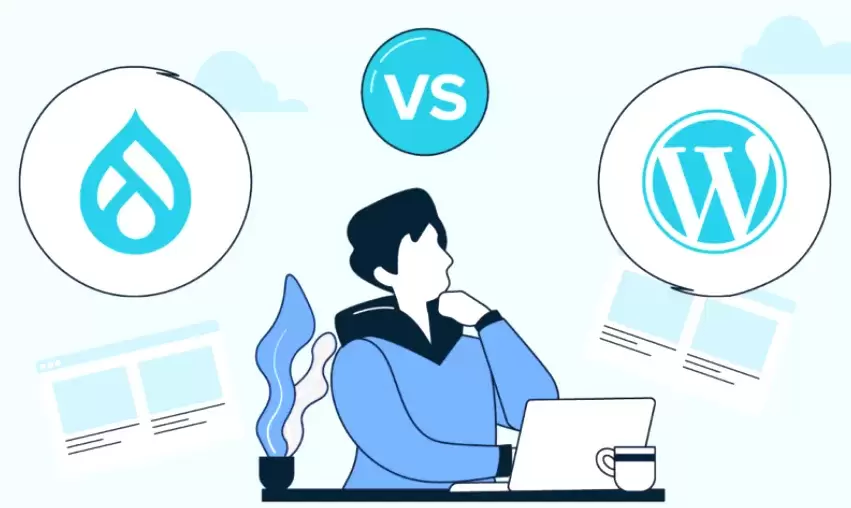Drupal and WordPress are two of the most popular content management systems (CMS) used for building websites. Each has its strengths and weaknesses, and the choice between them depends on your specific needs, technical expertise, and project requirements. Here's a comparison of Drupal and WordPress:
1. Ease of Use
- WordPress:
- Extremely user-friendly, especially for beginners.
- Intuitive interface with a simple dashboard.
- No coding knowledge is required for basic website setup.
- Ideal for bloggers, small businesses, and non-technical users.
- Drupal:
- Steeper learning curve, more complex to set up and manage.
- Requires some technical knowledge (e.g., PHP, HTML, CSS).
- Better suited for developers or users with technical expertise.
2. Flexibility and Customization
- WordPress:
- Highly customizable with thousands of free and premium themes and plugins.
- Great for small to medium-sized websites, blogs, and e-commerce (with WooCommerce).
- Limited scalability for very complex or large-scale projects.
- Drupal:
- Extremely flexible and powerful, ideal for complex, large-scale websites.
- Offers advanced customization options for developers.
- Better for websites requiring complex data organization, user permissions, and custom content types.
3. Performance and Scalability
- WordPress:
- Performs well for small to medium-sized websites.
- Can struggle with performance on very large or high-traffic sites unless optimized (e.g., caching, CDN).
- Scalability depends on hosting and plugins.
- Drupal:
- Built for high performance and scalability.
- Handles large amounts of data and high traffic more efficiently.
- Ideal for enterprise-level websites and applications.
4. Security
- WordPress:
- More vulnerable to security issues due to its popularity and the use of third-party plugins/themes.
- Requires regular updates and security plugins to stay secure.
- Drupal:
- Known for robust security features, making it a preferred choice for government and enterprise websites.
- Strong user permission system and built-in security measures.
5. Community and Support
- WordPress:
- Massive global community with extensive documentation, forums, and tutorials.
- Easy to find developers and resources.
- Drupal:
- Smaller but highly dedicated community.
- Strong support for developers, with detailed documentation and forums.
6. Cost
- WordPress:
- Free to use, but costs can add up for premium themes, plugins, and hosting.
- Affordable for small to medium-sized projects.
- Drupal:
- Free to use, but development and maintenance costs are higher due to the need for technical expertise.
- More cost-effective for large, complex projects.
7. Use Cases
- WordPress:
- Blogs, portfolios, small business websites, e-commerce (with WooCommerce), and simple websites.
- Best for users who want a quick and easy setup.
- Drupal:
- Enterprise websites, government portals, educational platforms, and large-scale applications.
- Best for users who need advanced functionality and scalability.
Conclusion
- Choose WordPress if:
- You need a simple, easy-to-manage website.
- You want a wide range of themes and plugins.
- Beginner or Non Technical user.
- Choose Drupal if:
- You have technical expertise or access to developers.
- You need a highly customizable and scalable solution.
- You're building a complex, large-scale website.
Both platforms are excellent in their own right, so your choice should depend on your project requirements and technical comfort level.
Likes
0

